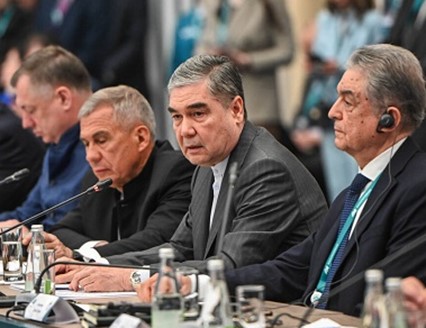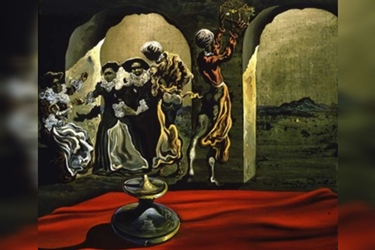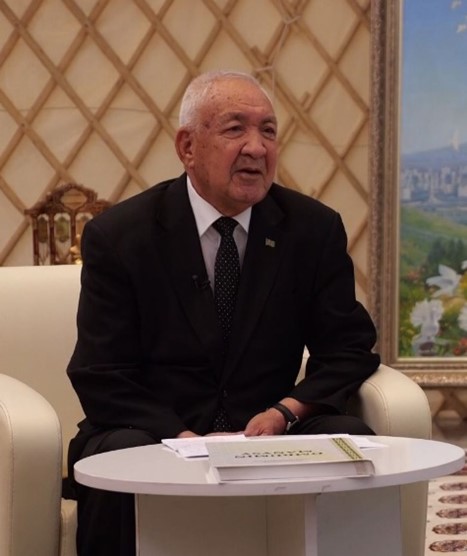Dr. Begench Karaev
The National Leader of the Turkmen people, Chairman of the Halk Maslakhaty of Turkmenistan Gurbanguly Berdimuhamedov, in his speech at the XV International Economic Forum “Russia-Islamic World: KazanForum 2024,” put forward a radically new idea to update the peacekeeping potential of Islamic civilization in the modern era. In particular, the Turkmen Leader stated: “I believe that Islamic countries can play a significant role in promoting peace and trust. Their voice must sound firmly and authoritatively with a clear call to do everything possible to de-escalate the situation in the world, transfer conflicts into negotiations, create conditions for respectful dialogue, and establish in international affairs not only a culture of communication, but also a culture of consensus.”
 Following this logic, the national Leader of Turkmenistan proposed to consider the possibility of developing an “Islamic Initiative for Peace, Mutual Understanding and Trust” with its subsequent nomination at one of the sessions of the UN General Assembly as an official document. At the same time, it is assumed that the “Islamic Initiative” should be open for all states to join it and “will give a clear and powerful signal: the Islamic Ummah does not stand aside, but, in a consolidated manner and with the support of other states and peoples, actively and constructively intends to influence the state of affairs in the world, to promote agreement and compromise.”
Following this logic, the national Leader of Turkmenistan proposed to consider the possibility of developing an “Islamic Initiative for Peace, Mutual Understanding and Trust” with its subsequent nomination at one of the sessions of the UN General Assembly as an official document. At the same time, it is assumed that the “Islamic Initiative” should be open for all states to join it and “will give a clear and powerful signal: the Islamic Ummah does not stand aside, but, in a consolidated manner and with the support of other states and peoples, actively and constructively intends to influence the state of affairs in the world, to promote agreement and compromise.”
One of the mechanisms designed to facilitate the development of a peace-loving “Islamic Initiative” is the institution of neutrality. As is known, the National Leader of the Turkmen people, in his speech from the rostrum of the third Antalya Diplomatic Forum on March 1, 2024, stated that: “Neutrality, its norms and practical methods must become more effective and broader than the means used today in the international community. We are sure that this will happen. The status of neutrality provides for non-alignment with blocs, non-use of military force and non-participation in conflicts. And the more countries follow these principles, the more supporters of this approach there are, the less likely conflicts will arise. In this matter, neutrality can become a positional springboard for healthy and responsible forces, individual countries or an alliance of states, which allows one to resolve conflict situations and demonstrate that emerging disagreements, no matter how complex and prolonged they may be, can be resolved through peaceful methods and negotiations.”
The call for peace on a platform of neutrality does not accept the principle of aggressive coercion “those who are not with us are against us.” Therefore, in the title of this article, the concepts of “neutrality” and “Crassus syndrome” are separated by the abbreviation “ vs ”, which is understandable to readers.
The desire for peace and the temptation of war constitute the two coordinate axes of human nature, which is also narrated in the biblical legend of the fratricide of Cain. The “war and peace” system, without a third axis – neutrality, is the environment for the functioning of Thucydides’ famous law on the security dilemma. This law, also known as the “Thucydides Trap” and which is very relevant to this day, was proven by the example of the Peloponnesian War between ancient Athens and Sparta in the middle of the fifth century BC.
Thucydides was one of the major commanders of Athens under the leadership of the strategist-commander-in-chief Pericles, but after one of the defeats in this war he was dismissed, and he could only observe the progress of the battles from the sidelines. As a result, the genius of military-political analytics, an outstanding historian and philosopher, managed to summarize the lessons of the Peloponnesian War in 7 books. Even today they do not languish on the shelves of academic libraries and are studied within the walls of leading military and diplomatic academies around the world.
According to Thucydides, conflict between the two power centers of antiquity was inevitable after the victory over the Persians in 449 BC, when each of the great victorious policies were at the peak of their power. Athens and Sparta were the centers around which allied blocs were formed – the Athenian Maritime League and the Peloponnesian League. When the external threat disappeared, the struggle for hegemony in the ancient Greek world began. The Peloponnesian War, which was the culmination of this rivalry, lasted a total of 27 years, was fought on land and sea, and involved virtually all of Ancient Greece, as well as colonies in Sicily and Asia Minor.
Thucydides identified two stages of confrontation that drive the participants into a kind of trap from which no one is destined to escape without resolving the accumulated contradictions on the battlefield.
The first stage is the struggle for existence, driven by the fear of being destroyed. The second stage occurs when each side reaches its maximum power, which leads to their all-out war for hegemony. Each stage can take place over a long period – several years, and the war itself can last for decades. Victory in one of the initial stages may be of a tactical nature, but ultimately, in a strategic perspective, the hegemon becomes the side that turns out to be much more advanced both in the state structure and in the ideological support of the goals of the war.
It is no coincidence that, having studied the lessons of Thucydides in detail, the military theorist of Rome Flavius Vegetius developed the principle “Si vis pacem, para bellum” – “If you want peace, prepare for war.” Unfortunately, the admonitions of the wise Flavius in his treatise on army reform “De re militari” remained unheeded by the then rulers of the world, because, before the collapse of the Roman Empire, the so-called “barbarians” remained only a few decades. Self-confident and pampered Roman patricians did not take into account the threat from the peripheral “wild provincials”, who, ultimately, hammered the last nail into the coffin of the great empire.
In the light of modern problems of world geopolitics, in conditions of growing polarization between the great powers, the relations between the Roman and Parthian empires, which formed a kind of binary system of balance of the international order on the eve and at the beginning of our era, are of great interest. Representing two sides of the world – East and West, they seem to resemble the Cold War period of the last century. Unlike previous confrontations between Athens and Sparta, or Macedonian Greece and the Achaemenid Empire, the Parthian-Roman couple managed to avoid the “Thucydides trap” for a long period.
According to a number of scientists, one of the main barriers to the then permanent “world war” was the political instrument of neutrality, which was used by Parthia in relation to the aggressive claims of Rome. In particular, the scholar-historian from Turkmenistan, Juma Orazklychev, based on the results of his research, provided irrefutable evidence that Parthia was the first state in world history to legally record its neutral status. As he said in one of his interviews with the press, in 69 BC. King Phraates III of Parthia insisted on the neutral status of his state and, together with the Roman ruler Lucullus, documented this. This event occurred when Rome began an aggressive campaign in the Caucasus against the regional rulers Mithridates of Pontus and his ally Tigranes II. Both warring parties turned to Parthia, each in order to lure it into their camp.
Phraates III understood that he would, willy-nilly, be drawn into the cycle of events and that Parthia’s position in this situation should be decisive. Phraates answered both sides in such a manner that both of them decided that he was promising them support, and he himself thought, apparently, to remain neutral and wait to see how the struggle in Asia Minor would end. The Parthian king’s response found Lucullus in Gordien, and the legate Sextilius was sent to Phraates to continue negotiations. Phraates suspected, and perhaps quite rightly, that the envoy was sent to him in order to then report on the movements of the Parthians, their strength and their readiness for war . As a result, he did not support either side, but preferred diplomacy of neutrality.
Self-confident Lucullus, after conquering the Caucasus, decided to attack Parthia and was the first to break the treaty with Phraates III. But the troops led by Gaius Sornatius and the guard legions of Lucullus himself then refused to take positions against Parthia. However, in the future, Lucullus still forced the Roman troops to go against the Parthians and started a long war for dominance in the Near East.
The Euphrates River, which Rome crossed in the summer of 54 BC, became a kind of “red line”. e., invading the lands of Parthia. In April 53 BC. The triumvir Crassus, at the head of a 40,000-strong corps, began military operations in the Zeugma area on the eastern bank of the Euphrates. The finale of Crassus’ non-stop megalomania was his defeat in one of the greatest battles at Carrhae, where he was killed and the Roman legions were completely exterminated. Thus, an end was put to Rome’s claims regarding the conquest of the East in the person of the then Parthia.
Therefore, the basis for the formulation by your humble servant of the term “Crassus syndrome” was an example of the uncontrollable megalomania that Crassus suffered, as well as his thirst for self-affirmation as being not inferior in military leadership to either Pompey or Caesar. Moreover, Crassus was already known for his brutal suppression of a slave uprising led by the legendary Spartacus. Therefore, the name “Appian Way”, meaning the path hung with gallows by Crassus, is still a common noun to this day – to describe the brutal attitude of the conquerors towards the vanquished or conquered peoples.
As history shows, the lack of clear strategic thinking, underestimation of the Parthians, whom the Romans considered weak barbarians, as well as ignorance of the terrain led to catastrophic consequences for the Roman army. The Parthian army showed an example of thoughtful military tactics that made it possible to defeat a strong enemy. The defeat at Carrhae became the reason for Rome to seek a temporary truce with Parthia and stop its aggressive expansion to the East. Only a few decades later, the eagles-symbols of Crassus’ legions were transferred to Rome.
The last battle of the giants began in 214, when Emperor Caracalla decided to finally destroy Parthia, weakened by that time by the internecine war between claimants to the throne. But Caracalla became a victim of a conspiracy and was killed on April 8, 217. The new Emperor Macrinus led the Roman army in a decisive battle near the city of Nisibis in 217 and suffered a crushing defeat. Rome also undertook to pay a huge indemnity of 200 million sesterces. As a result, the once victorious Roman army was essentially destroyed. All achievements of Rome in the wars with Parthia were lost.
Thus, we can trace that the proud Parthians were able to withstand the all-powerful Rome and even turn into its worthy rival, which repeatedly provoked attacks of “Crassus syndrome” among Roman emperors and generals.
In the history of the East, we can observe a similar syndrome of greatness and ignorance of the “barbarians” on the part of the Ghaznavid empires in relation to the Seljuks, Khorezmshah in relation to the Mongols, Byzantium towards the Ottomans, Britain and the Soviet Union, and subsequently the USA towards the Afghans. At the end of the Cold War, the so-called Soviet “old men” underestimated the potential of the satellite countries in Eastern Europe.
Ambassador Sapar Berdyniyazov, an experienced diplomat with many years of experience in the regions of the Middle East and South Asia, draws attention to the need to carefully study not only the national specifics and traditions of the host country, but those qualities of peoples that are of a universal human nature. In particular, Sapar Berdyniyazov, being a senior diplomat at the USSR Embassy in Kabul in the 1980s, spent a lot of nerves trying to wean some Soviet political advisers from their party habits of telling Afghan farmers how to sow and harvest crops.
In this regard, veteran of diplomatic service Sapar Komekovich considers the study of the national character of peoples to be one of the fundamental issues in the training of international affairs specialists. In particular, for the peoples inhabiting the vast region of the historical stage of the “Great Game”, including the Turkmen and the Afghans, the concepts of honor, loyalty to one’s word and sincerity are of very high importance. “Tell the truth, even if it is against you,” says popular wisdom. Here we can also add that the ancient traditions of good neighborliness and hospitality are firmly rooted in the East. There are many sayings on this topic: “Before you build a house, find out who your neighbor is,” “Live next door to a happy person, and you will be happy yourself,” “Take care of your neighbor first,” “A close neighbor is better than a distant brother.” etc. Indeed, the concept of “time” is practically inapplicable to folk proverbs, and they are evidence that for many centuries our peoples have taken root in the culture of observing agreements, even verbal promises.
The world-famous writer and diplomat Chingiz Aitmatov, in his deeply philosophical novel “When Mountains Fall: (The Eternal Bride),” reflects precisely on the resilience of national character and ways of life under the pressure of advancing globalization and mercantilism. The novel takes place high in the Tien Shan Mountains, where the tragic paths of two suffering creatures intersect: a talented human writer and a lonely snow leopard. Both of them are victims of time, victims of circumstances, hostages of their own fate.
Intellectual Arsen Samanchin returns to his native village, where a hunt for snow leopards is organized for wealthy tourists and oil magnates. As a result, he dies along with the leopard in a cave from the hunting bullets of visiting adventurers. The reader here learns that according to Kyrgyz legend, the snow leopard represents the symbol of the Eternal Bride. Here Arsen, who lost his first love in his youth, and is now falling into unconsciousness from loss of blood, blocking the wounded wild beast from the “civilized animals”, has a wonderful vision of his long-dead beautiful bride.
Looking into the past, and especially into the future, the gray-haired Ambassador Berdyniyazov reflects on the need to preserve imperishable values, including in the field of international communication. The past twentieth century represented an era of new hope for humanity, which was inspired by unheard-of scientific and technological achievements, and at the same time, against the backdrop of two world wars, experienced the devastation of universal faith in the Kantian “eternal peace.” But the ideas of “democracy” turned out to be very contradictory using the example of Europe and the USA, and the idol of communism was crushed using the example of the former USSR.
The Soviet Union of the Khrushchev era offered the impoverished outskirts of the planet a recipe for building communism, and the United States of the Reagan era personified the brilliance of democratic ideals. As the genius of American diplomacy Henry Kissinger noted in his book “Diplomacy,” the US development experience has an attractive, but dual image, on the one hand, as a “beacon”, and on the other, as a “crusader fighter”.
Some phenomena in modern global politics indicate the omnipresence and timelessness of the “Crassus Syndrome,” manifested in the painful pride and false confidence of a number of powerful people in victory over the “uncivilized savages.” The “information explosion” in the media space, as well as growing crisis phenomena of a social, economic, climatic and environmental nature, have given rise to tectonic shifts, which have resulted in entropic processes in societies with seemingly unshakable foundations. As a result, the modern world is increasingly entangled in the ubiquitous web – “www” and social networks of virtual societies – “net” with billions of “netizens.” Mass culture, in turn, gives rise to mass psychology, which is somewhat reminiscent of crowd psychology, the theoretical foundations of which were once developed by Gustav Le Bon. This psychology drives the “savages” towards Europe, which is a kind of “beacon” for the disadvantaged, rushing to the West – the territory of the “golden billion”.
And with the Crassus syndrome in these conditions, most likely, it contributes to the reproduction of conditional “crusader fighters” rather than to the construction and arrangement of attractive “beacons” in different parts of the World.
In this case, there is no doubt that the winners will be those countries and peoples who avoid the “Thucydides trap” and choose the path of mutual trust and cooperation. The process of positive, active and constructive neutrality promoted by Turkmenistan in the international arena also aims at this. Widespread support for this path is evidenced by the proclamation at the UN level of 2025 as the International Year of Peace and Trust.
The corresponding resolution, at the initiative of Turkmenistan, was unanimously adopted at the 63rd plenary meeting of the 78th session of the UN General Assembly, co-authored by 86 member states of the Community of Nations.

Dr. Begench Karaev deals with the problems of philosophy of law and politics. He is the author of a number of textbooks and monographs, including “Political analysis and strategic planning”, “Political analysis: problems of theory and methodology: (Experience in the study of modern Central Asian society)” and “Traditional and modern in the political life of Central Asian society (experience of political analysis)”. /// nCa, 22 May 2024
Truth for a diplomat – Part 5. Antalya Forum: victory will be with diplomacy
TRUTH FOR THE DIPLOMAT – Part 6 – Public diplomacy: historical connection of times

